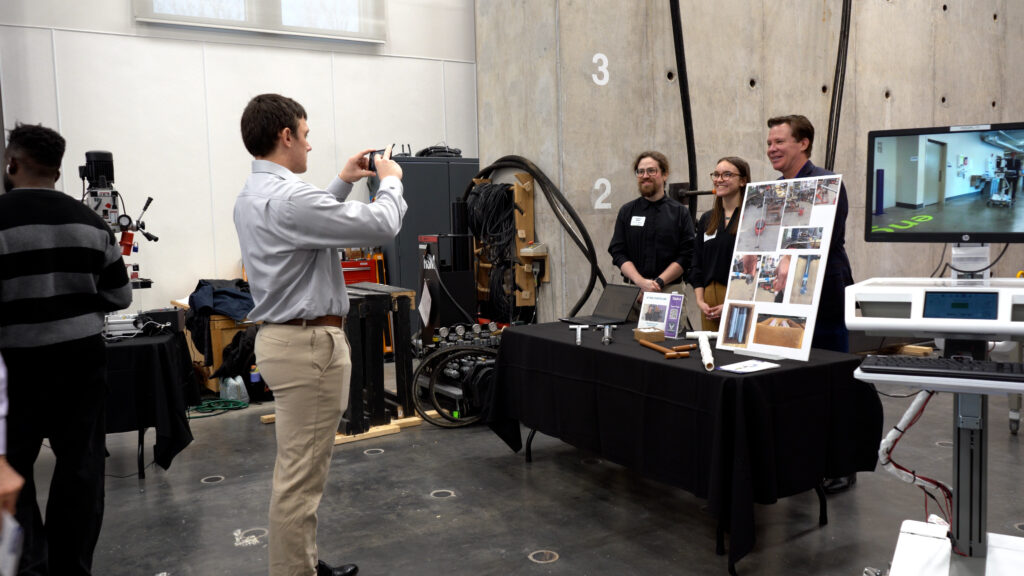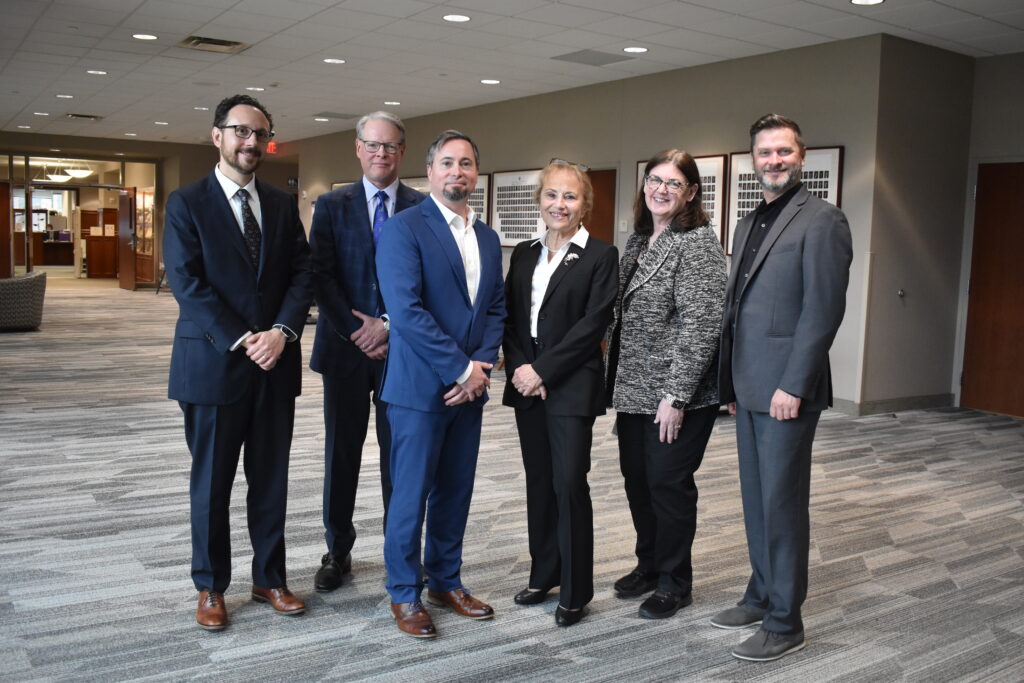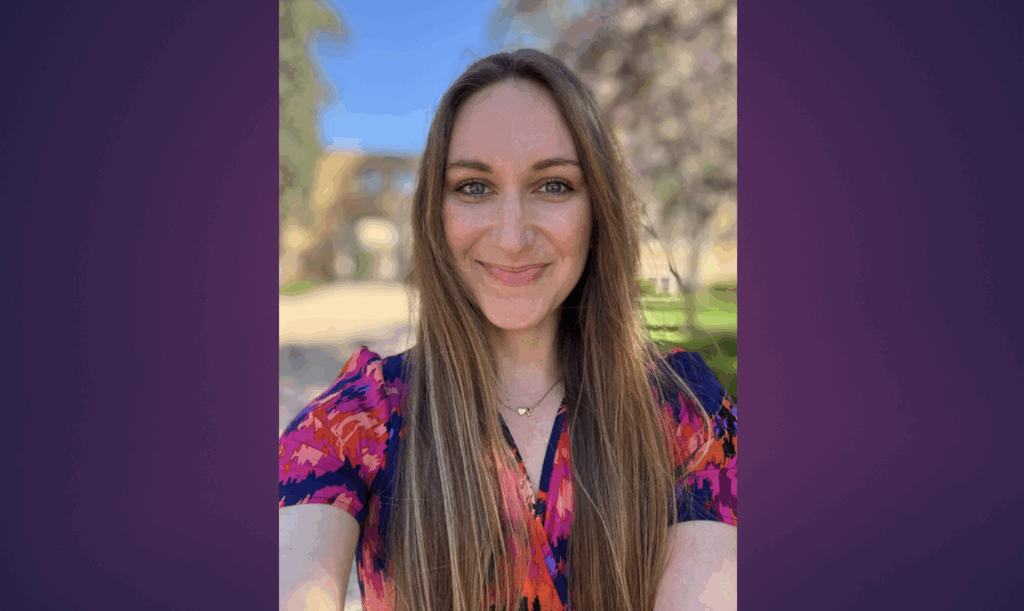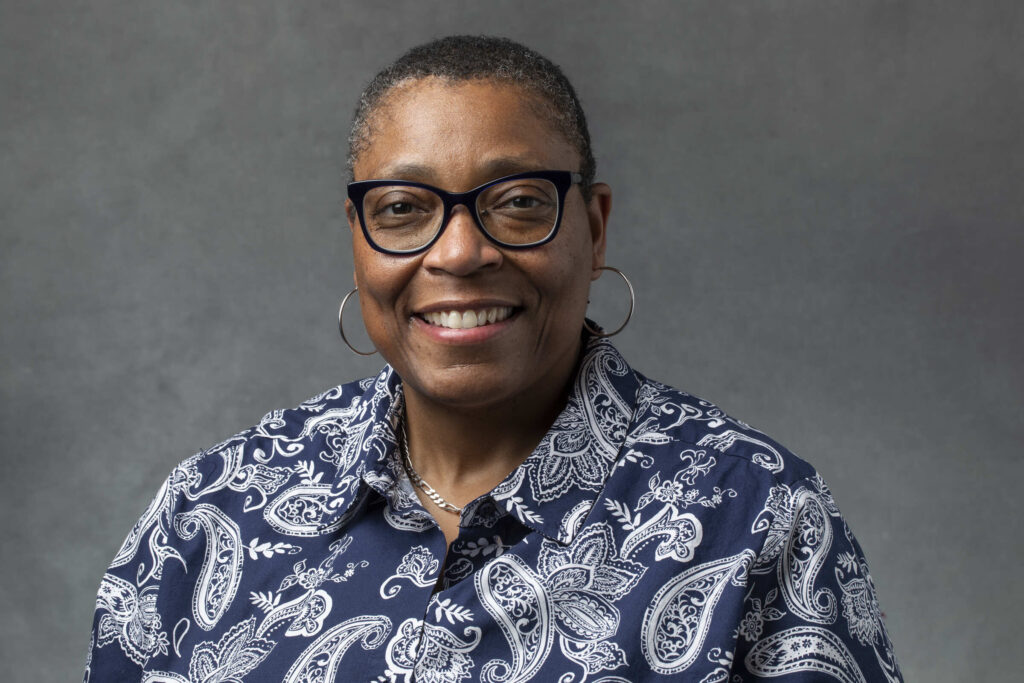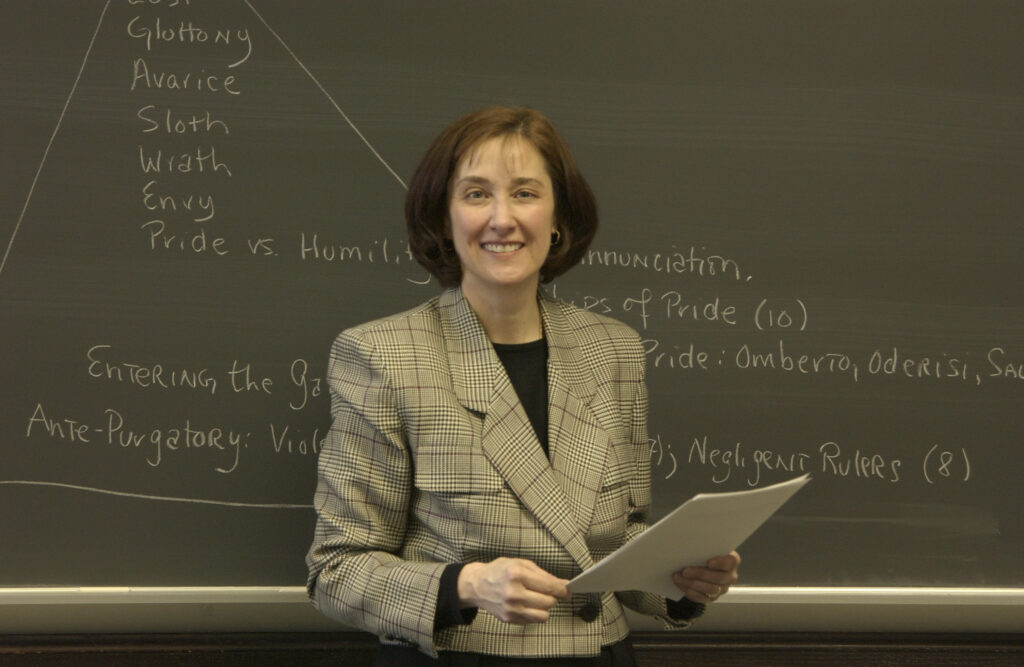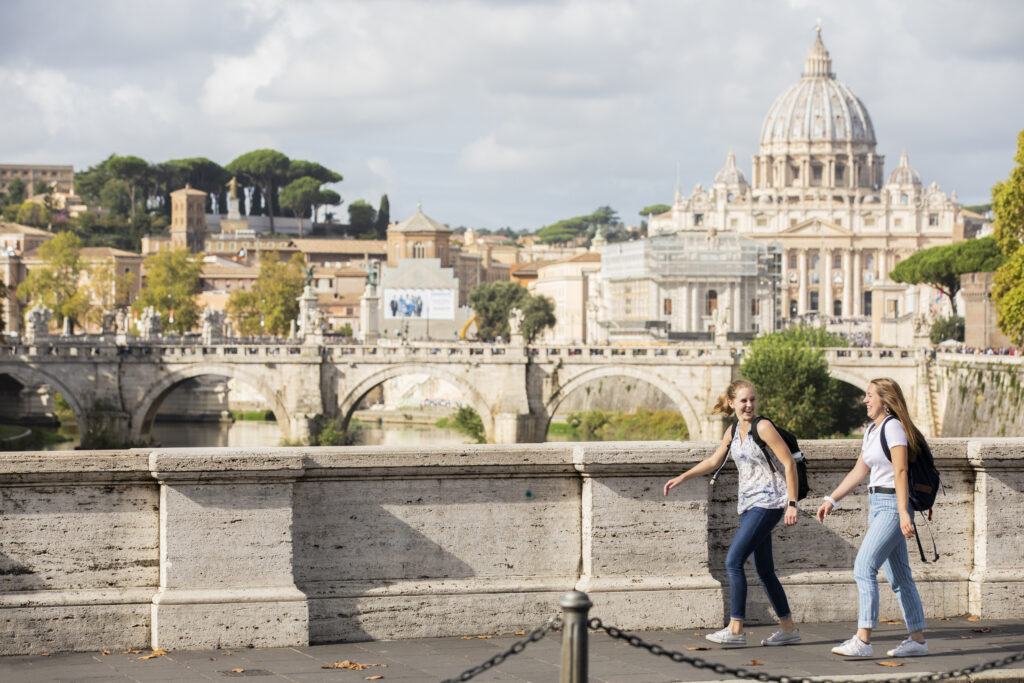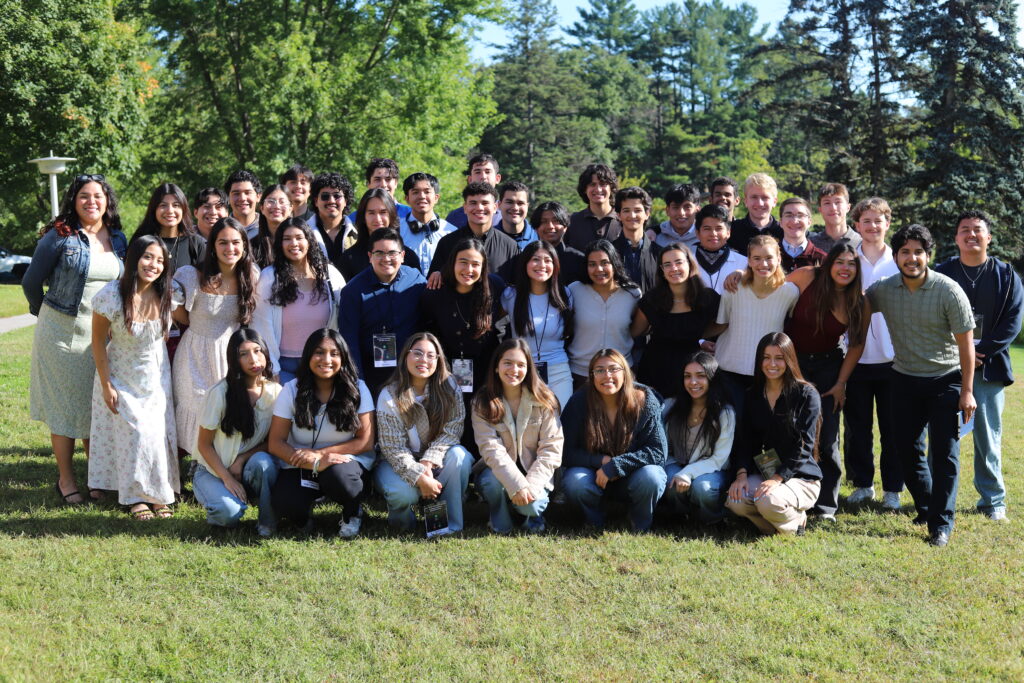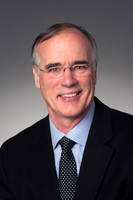
Dr. Bernard Brady
In the first question of his Summa Theologica, our patron, St. Thomas, considers the nature and necessity of theology, what he calls, “Sacred Doctrine.” In the fifth article of the question, he asks “Whether Sacred Doctrine is nobler than other sciences?” Thomas describes theology as both a speculative science and a practical science. As a speculative science, it transcends other sciences on two accounts: its greater certitude and its subject matter. As a practical science, it transcends other sciences as its end or purpose is eternal bliss. He concludes, “Hence it is clear that from every standpoint it is nobler than other sciences. . . . Other sciences,” he writes, “are called the handmaidens of this one.” Thomas then quotes the Book of Proverbs to support his conclusion: “Wisdom sent her maids to invite to the tower.”
While Thomas’ language about theology still resonates today, many of his claims are time-bound. First, it makes little sense to describe theology as a “science” in the twenty-first century. Second, while contemporary theology is both speculative and practical, it is neither speculative nor practical as Thomas understood these terms. Third, “Wisdom” in Proverbs is not Sacred Doctrine as such. Coming from God, Wisdom “is a revelation from God” that “mediates between God and the world.” All of this is to say contemporary academic disciplines are not merely “maids” or “handmaidens” to theology, the Queen of the Sciences.
I think that H. Richard Niebuhr, in a 1955 essay, was closer to the truth about the role of theology in a university. “Theology can by no means be queen,” he writes. “It can ask only for a place of service. It enters into the company of the sciences and studies not to be ministered to but to minister.” Theology, he continues, is the “servant of its fellow servants” and “servant of the university. . . . As a fellow servant of truth, in this sense theology takes its place in the university alongside other inquiries, never separated from them, never dependent upon them, never isolating itself with them from the totality of the common life which is the universe.” Indeed, theology must, he says, take “pride in her handmaiden’s role.”
The source of the “handmaiden” metaphor used by both Thomas and Niebuhr is Proverbs 9:1-6. The text proclaims that Wisdom built her house, the universe—the world—in an ordered, intelligible way. It is complex and beautiful—complete with seven pillars. Wisdom’s invitation, a very public invitation, shouted from the highest points, is to leave naiveté, immaturity, foolishness, and ignorance behind for understanding and knowledge. Wisdom is “gained” then as people come together for the feast. Biblical commentators note that this food not only gives life to the body, but it nourishes the soul, feeds the intellect, sustains moral character, and fortifies a sense of social responsibility in persons. In the staunchly patriarchal ancient culture out of which the biblical texts emerge, Wisdom is presented as a woman to be sought after, cherished, and loved. Indeed, we are to have an ongoing, faithful, relationship with her.
This text was been used analogically to describe the medieval university with its “seven” liberal arts pillars. A more compelling allegorical interpretation is that Wisdom calls all who want to learn to come to the table and feast on great ideas and engage in conversation at the table. This fits nicely with the contemporary understanding of the Catholic intellectual tradition and the mission of St. Thomas. Certainly, we want our graduates to be critical writers and thinkers, well trained in their major field of study. But we also want something more. We want our graduates to develop the life-directing wisdom combining intellect, moral character, and social responsibility stemming from an acknowledgement that “Wisdom has built her house.” God has so ordered the world. Theology, a servant within a university, has an important role to play.
In July of 1967, a group of Catholic higher-education leaders, led by Notre Dame’s Fr. Hesburgh, met and reflected on the nature of the contemporary Catholic university. The group produced what came to be known as the “Land O’Lakes Statement.” The Statement describes the primary task of theology to explore the depths of the Christian tradition as well as the breadth of the religious heritage of the world. “Particularly important today is the theological exploration of all human relations and the elaboration of a Christian anthropology. Furthermore, theological investigation today must serve the ecumenical goals of collaboration and unity.” They continue, “In a Catholic university there will be a special interest in interdisciplinary problems and relationships. . . . This creative dialogue,” they state, “will involve the entire university community, will inevitably influence and enliven classroom activities, and will be reflected in curriculum and in academic programs.” Here is their key claim: “Theology must promote discussion and dialogue both within its own areas of study and with other disciplines.”
Pope John Paul II’s 1990 Ex Corde Ecclesiae affirms the Statement’s commitment to dialogue as an essential element of a Catholic university. Indeed, the word “dialogue” appears 22 times in the document’s 49 paragraphs. Dialogue between faith and reason (which I take to mean “clear, logical thinking in any area of inquiry”) is a key characteristic of the Catholic university. Because of this primary characteristic, a Catholic university ought to be a community “animated by a spirit of freedom and charity . . . characterized by mutual respect, sincere dialogue, and protection of the rights of individuals.” The Pope specifically highlights dialogue among disciplines, institutions, cultures, modern societies, sciences, as well as among Christian denominations and between Christianity and other religions. Moreover, he notes the important role theology has as a servant in the contemporary Catholic university.
Theology plays a particularly important role in the search for a synthesis of knowledge as well as in the dialogue between faith and reason. It serves all other disciplines in their search for meaning, not only by helping them to investigate how their discoveries will affect individuals and societies, but also by bringing a perspective and an orientation not contained within their own methodologies. In turn, interaction with these other disciplines and their discoveries enriches theology, offering it a better understanding of the world today, and making theological research more relevant to current needs.
Pope Francis is helpful here when he addresses the question about what makes dialogue possible. A dramatic theme of his 2015 Encyclical, Laudato Si’ (see Angela Senander’s article in this issue) is the interrelatedness of creation, of all that exists. “Creation,” he writes, “is of the order of love. God’s love is the fundamental moving force in all created things. . . . In this universe, shaped by open and intercommunicating systems, we can discern countless forms of relationship and participation. This leads us to think of the whole as open to God’s transcendence, within which it develops. Faith allows us to interpret the meaning and the mysterious beauty of what is unfolding.”
The Pope writes of the “deep communion” within nature. “[E]verything is interrelated.” Indeed, he proclaims, “It cannot be emphasized enough how everything is interconnected . . . It follows that the fragmentation of knowledge and the isolation of bits of information can actually become a form of ignorance, unless they are integrated into a broader vision of reality. . . . Strategies for a solution demand an integrated approach to combating poverty, restoring dignity to the excluded, and at the same time protecting nature.” This starts through dialogue, the “free exchange of views.” He continues:
Given the complexity of the ecological crisis and its multiple causes, we need to realize that the solutions will not emerge from just one way of interpreting and transforming reality. . . .
[N]o branch of the sciences and no form of wisdom can be left out, and that includes religion and the language particular to it. The Catholic Church is open to dialogue with philosophical thought; this has enabled her to produce various syntheses between faith and reason. The development of the Church’s social teaching represents such a synthesis with regard to social issues; this teaching is called to be enriched by taking up new challenges.
The Catholic intellectual tradition then is a strange “tradition.” Contemporary sociologist Hans Joas tells us that “traditions generate nothing,” yet the Catholic theology has been most generative because of the Catholic Intellectual Tradition’s openness to dialogue. It has produced a canon of classic works in theology, philosophy, spirituality, poetry, fiction, and biography, as well as music, art, and architecture.
The Theology Department at St. Thomas energetically embraces its role as servant and promoter of the Catholic intellectual tradition within our campus community, in the broader community, and within the Church. This issue demonstrates this commitment by highlighting our work in interfaith dialogue and interdisciplinary dialogue, even as it highlights the work of members of our department.
Bernard Brady has served as chair of the Theology Department at the University of St. Thomas since 2006.
From “theology matters,” a newsletter of the Department of Theology. Subscribe here.
